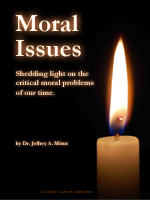Pope opens synod on new evangelization, declares 2 new doctors of the Church
CWN - October 08, 2012
Opening the Thirteenth Ordinary General Assembly of the Synod of Bishops, Pope Benedict emphasized that "the Church exists to evangelize" and formally proclaimed St. John of Avila (1500-69) and St. Hildegard of Bingen (1098-1179) doctors of the Church.St. John of Avila, the Pope said during his homily at Mass in St. Peter's Basilica, was a "profound expert on the sacred Scriptures, he was gifted with an ardent missionary spirit. He knew how to penetrate in a uniquely profound way the mysteries of the redemption worked by Christ for humanity. A man of God, he united constant prayer to apostolic action. He dedicated himself to preaching and to the more frequent practice of the sacraments, concentrating his commitment on improving the formation of candidates for the priesthood, of religious and of lay people, with a view to a fruitful reform of the Church."
Pope Benedict added that St. Hildegard
offered her precious contribution to the growth of the Church of her time, employing the gifts received from God and showing herself to be a woman of brilliant intelligence, deep sensitivity and recognized spiritual authority. The Lord granted her a prophetic spirit and fervent capacity to discern the signs of the times. Hildegard nurtured an evident love of creation, and was learned in medicine, poetry and music. Above all, she maintained a great and faithful love for Christ and his Church.
Discussing the synod's theme – "The New Evangelization for the Transmission of the Christian Faith" – Pope Benedict preached that
the Church exists to evangelize. Faithful to the Lord Jesus Christ's command, his disciples went out to the whole world to announce the Good News, spreading Christian communities everywhere. With time, these became well-organized churches with many faithful. At various times in history, divine providence has given birth to a renewed dynamism in the Church's evangelizing activity. We need only think of the evangelization of the Anglo-Saxon peoples or the Slavs, or the transmission of the faith on the continent of America, or the missionary undertakings among the peoples of Africa, Asia and Oceania.
Pope Benedict distinguished two "branches" of evangelization: "the Missio ad Gentes or announcement of the Gospel to those who do not yet know Jesus Christ and his message of salvation" and "the New Evangelization, directed principally at those who, though baptized, have drifted away from the Church and live without reference to the Christian life."
"The Synodal Assembly which opens today is dedicated to this new evangelization, to help these people encounter the Lord, who alone who fills our existence with deep meaning and peace; and to favor the rediscovery of the faith, that source of grace which brings joy and hope to personal, family and social life," he continued.
Stating that "there is a clear link between the crisis in faith and the crisis in marriage," the Pope added that "matrimony is a Gospel in itself, a Good News for the world of today, especially the dechristianized world."
"The fragility, even sin, of many Christians … is a great obstacle to evangelization and to recognizing the force of God that, in faith, meets human weakness," he continued. "Thus, we cannot speak about the new evangelization without a sincere desire for conversion. The best path to the new evangelization is to let ourselves be reconciled with God and with each other (cf. 2 Cor 5:20). Solemnly purified, Christians can regain a legitimate pride in their dignity as children of God, created in his image and redeemed by the precious blood of Jesus Christ, and they can experience his joy in order to share it with everyone, both near and far."
Some links will take you to other sites, in a new window.
- 7 October 2012: Holy Mass for the opening of the Synod of Bishops and proclamation of St John of Avila and St Hildegard of Bingen as "Doctors of the Church" (Holy See)
- Pope opens Synod: The Church exists to evangelize (Vatican Radio)
- Pope names 2 church doctors at start of synod on re-spreading faith to areas where it's fallen (AP)
- Pope launches drive to reclaim lapsed Western Catholics (Reuters)
